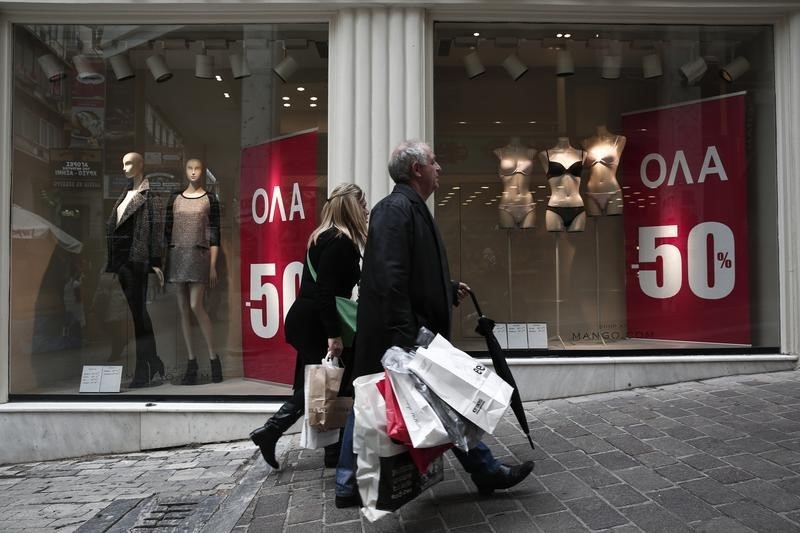(Bloomberg) -- U.S. consumer sentiment posted a surprise increase in early May amid widespread virus-relief payments and discounts for big-ticket items, though pessimism deepened about the longer-term outlook for incomes and the economy.
The University of Michigan’s preliminary sentiment index rose 1.9 points from an eight-year low to 73.7, according to data Friday. That compared with the median estimate for a decline to 68 in a Bloomberg survey of economists.
The measure of current conditions rose 8.7 points to 83, while the expectations index fell 2.4 points to 67.7, the lowest level since 2013.
“Confidence inched upward in early May as the CARES relief checks improved consumers’ finances and widespread price discounting boosted their buying attitudes,” Richard Curtin, director of the survey, said in a statement. “Despite these gains, personal financial prospects for the year ahead continued to weaken.”
A separate report Friday showed retail sales plunged in April by the most on record.
The Michigan report said the improvement in buying conditions for durable goods reflected deep discounts, especially on autos, as well as low interest rates. That helped offset concerns about job and income prospects.
A measure of sentiment on respondents’ current financial situations improved from the prior month due to income gains. But personal financial prospects for the year ahead were the lowest in almost six years.
Although some items are being heavily discounted, prices have been rising for everyday essentials such as food. The Michigan report showed inflation expectations for the year ahead jumped to 3%, the highest since 2018.
Asked about their top concerns related to the pandemic, 57% of respondents cited health, down slightly from 61% the prior month, while 17% said finances and 21% said social isolation. That indicates the “growing costs of social isolation and its potential to shift opinions about reopening the economy,” Curtin said.
While a number of states are beginning to let businesses reopen, it’s unclear how much confidence will rise in the near term. Economists expect a significant pick-up in activity in the third quarter, but a return to normal is still nowhere in sight as tens of millions of Americans are now out of work and schools remain closed.
The survey was conducted April 22 to May 13. During that period, the Labor Department reported that more than 20 million people lost their jobs, sending the unemployment rate to its highest since the Great Depression era.
The Michigan report also showed a wide partisan gap in confidence persisting between Democrats and Republicans, though the difference has narrowed since the pandemic started.
